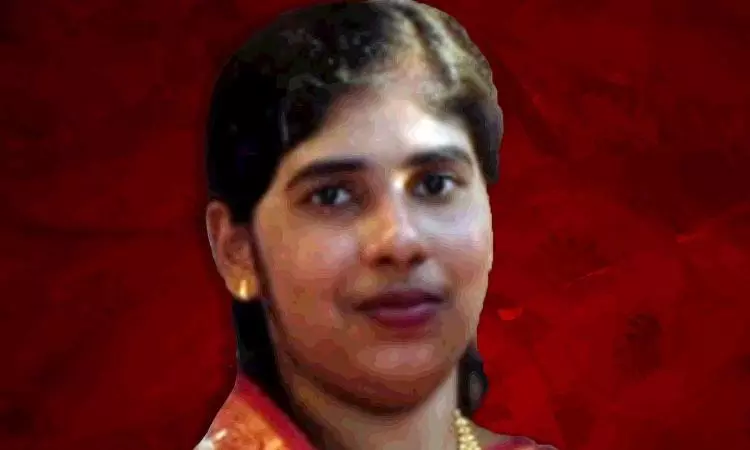
Yemen postpones execution of Nimisha Priya amid intense efforts by Grand Mufti of India
The execution, initially set for July 16, has been halted for now. Earlier, negotiators on her behalf have offered the victim's family blood money of $1 million

In a significant reprieve for Nimisha Priya, the Indian nurse on death row in Yemen, the scheduled execution has been officially postponed. An official communication issued by the Office of the Prosecutor General in Yemen confirms that the execution, initially slated for Wednesday, July 17, has been deferred until further notice. The decision follows an intense wave of negotiations led by prominent religious actors, including the Grand Mufti of India, Kanthapuram A.P. Aboobacker Musliyar.
The order, signed by the Deputy Attorney General for the Specialised Criminal Prosecution, was addressed to the Director of Central Reform Prison in the capital. It instructs that the execution not be carried out as scheduled and should remain on hold until further notice from the authorities. The postponement comes as a relief for Nimisha Priya’s family and well-wishers, who have been campaigning vigorously to save her life.
Blood money
Nimisha Priya, a nurse from Kerala, has been in a Yemeni prison for over a decade. She was sentenced to death for the murder of her Yemeni employer, Talal, in a case that has remained fraught with legal, cultural, and emotional complexities. Her conviction stems from a highly controversial incident in which she attempted to flee an allegedly abusive relationship by sedating Talal, which led to his death.
The Yemeni legal system, rooted in tribal customs and Islamic law, provides for the payment of diyya (blood money) to the victim’s family in exchange for a pardon. However, efforts to reach the family had been unsuccessful for years, as the case triggered intense emotional and tribal sentiments in Talal’s hometown of Dhamar.
Also Read: Grand Mufti's intervention brings hope for Nimisha Priya
Grand Mufti of India intervenes
India’s official diplomatic avenues have faced severe limitations, especially after the outbreak of civil war in Yemen. Despite multiple appeals, the Indian government has admitted that its scope for direct intervention is limited, particularly given that India has no active diplomatic mission in Yemen.
Against this backdrop, a unique religious and humanitarian initiative took shape. Kanthapuram A.P. Aboobacker Musliyar, a leading Sunni scholar from Kerala and the Grand Mufti of India, launched an extraordinary personal effort to build a bridge between the parties involved. Working through Sufi religious networks in Yemen, he reached out to Sheikh Habib Umar bin Hafiz — a globally respected Sufi leader — to open communication channels with the victim’s family.
It was through this religious channel that the first real breakthrough occurred. The family, which had previously refused to engage, agreed to resume talks after Sheikh Habib’s intervention. Subsequently, a senior relative of Talal, who is also a judge and a member of Yemen’s Shura Council, travelled to Dhamar to participate in the negotiations. This individual, believed to be a follower of Sheikh Habib’s Sufi order and the son of another revered Sufi figure, played a pivotal role in softening the family’s stance.
"Islam provides such a provision, and it is not a religion of communal hatred — this is something we have been able to convey through our words. Our intervention is based on the belief that it is our duty to strive for the good of the world," said Kanthapuram A P Aboobacker Musaliar.
Behind-the-scenes persuasion
Today’s decision to defer the execution was the result of behind-the-scenes persuasion and ongoing negotiations around the payment of blood money. Sources on the ground say the talks between Nimisha Priya’s representatives and Talal’s family have reached a sensitive yet hopeful stage.
“The decision to postpone the execution is a humanitarian opening. It gives time for the negotiations to continue in good faith,” said K R Subhash Chandran the lawyer who represented Save Nimishapriya international action council in the Supreme Court
It is also understood that the Yemeni authorities took into account the requests made by Sheikh Habib and Kanthapuram to delay any punitive measures while the reconciliation process is underway. The request to stay the execution temporarily was personally communicated to the Attorney General and received a favourable response.
Also Read: Govt approaches Yemeni prosecution to halt Nimisha Priya's execution
Sensitive issue among victim’s community
The murder of Talal remains an emotionally charged issue in Dhamar and among his tribal community. It is not just a legal matter but one deeply tied to honour, shame, and retribution — traditional pillars of Yemeni tribal society. This has made any form of negotiation particularly challenging. However, the religious legitimacy carried by leaders like Sheikh Habib and Kanthapuram appears to be creating a rare space for dialogue and reconsideration.
Supporters of Nimisha Priya, including her family and rights activists in India, have been cautiously optimistic. Her mother, Latha, who has made repeated pleas to the Indian government and the global community, described the latest development as “a moment of hope.”
Also Read: Nimisha Priya's family offers $1 million 'blood money'
Execution still legally valid
While the postponement is a major development, it does not mean Nimisha Priya is out of danger. The execution is still legally valid and could be reactivated at any time unless a full pardon is granted. For that to happen, Talal’s family must formally accept diyya, and a signed reconciliation agreement must be submitted to the authorities.
The coming days will be crucial. Negotiations over the amount of blood money and the conditions of the pardon are still underway. The role of religious leaders and tribal mediators will continue to be critical in navigating the next steps.
For now, Nimisha Priya’s life has been spared — and with it, a flicker of hope has been restored in a story that had seemed all but closed.

